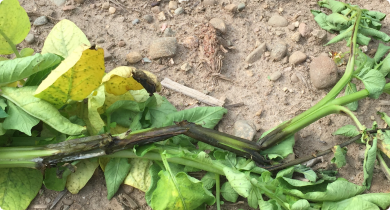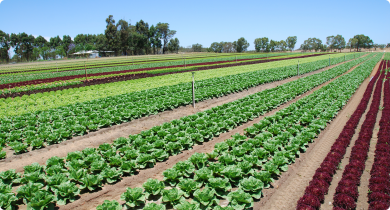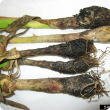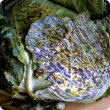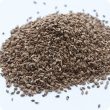Vegetables
The Department of Primary Industries and Regional Development works closely with the vegetable industry to promote growth through better market access, developing integrated pest management programs and improving water and fertiliser use efficiency.
Vegetable production in Western Australia had a farm gate value of about $336 million in 2013, with the total industry value being $909 million. Most crops are grown for local consumption, apart from carrots, which are exported year-round to South East Asia and the Middle East.
The main growing areas are in the South-West, especially the Swan Coastal Plain from Gingin to Busselton, and around Manjimup and Albany.
Articles
Pages
- « first
- ‹ previous
- 1
- 2
- 3
Filter by search
Filter by topic
- (-) Remove Diseases filter Diseases
- (-) Remove Pests, weeds & diseases filter Pests, weeds & diseases
- Biosecurity & quarantine (15) Apply Biosecurity & quarantine filter
- Biosecurity (15) Apply Biosecurity filter
- Plant biosecurity (14) Apply Plant biosecurity filter
- Potatoes (13) Apply Potatoes filter
- Fungi (10) Apply Fungi filter
- Tomatoes (7) Apply Tomatoes filter
- Viruses & virus-like (7) Apply Viruses & virus-like filter
- Crop diseases (5) Apply Crop diseases filter
- Carrots (5) Apply Carrots filter
- Bacteria (5) Apply Bacteria filter
- Cauliflower (4) Apply Cauliflower filter
- Chinese cabbage (4) Apply Chinese cabbage filter
- Cabbage (4) Apply Cabbage filter
- Brussels sprouts (4) Apply Brussels sprouts filter
- Broccoli (4) Apply Broccoli filter
- Pests (3) Apply Pests filter
- Capsicums and chillies (3) Apply Capsicums and chillies filter
- Onions (3) Apply Onions filter
- Production & postharvest (2) Apply Production & postharvest filter
- Garlic (2) Apply Garlic filter
- Parsnips (1) Apply Parsnips filter
- Postharvest (1) Apply Postharvest filter
- Sowing (1) Apply Sowing filter
- Nursery & cutflowers (1) Apply Nursery & cutflowers filter
- Beans (1) Apply Beans filter
- Canola (1) Apply Canola filter
- Grains (1) Apply Grains filter
- Leeks (1) Apply Leeks filter

